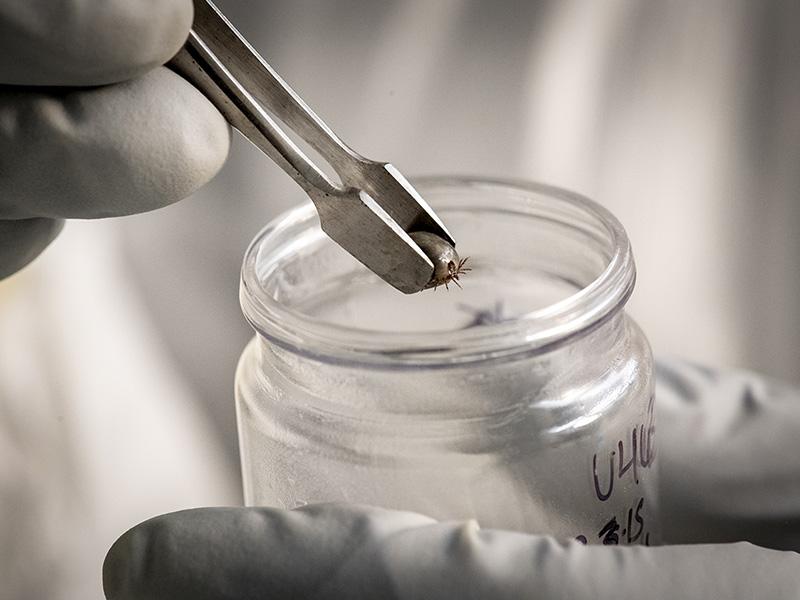Tulane researchers to develop new Lyme vaccine with lasting protection
Cases of Lyme disease are rising across the globe, yet there is still no vaccine on the market to protect people against the tick-borne infection.
Researchers at Tulane University recently received $1.3 million from the National Institutes of Health to find out if the same technology behind a successful Lyme disease vaccine for dogs can be formulated with immune-boosting nanoparticles to offer safe and lasting protection for people.
The team will use a vaccine that combines multiple protein regions to elicit a long-lasting immune response to the bacteria responsible for Lyme disease. This vaccine, invented by Richard Marconi, Ph.D. at Virginia Commonwealth University, will be combined with different adjuvants, or ingredients added to boost immune responses, to determine which provides the best protection.
The study will include an adjuvant developed at Tulane comprised of nanoparticles from bacteria called outer membrane vesicles (OMVs). Our bodies recognize OMVs secreted by live bacteria during natural infection. When used in vaccines, they can fool the body into mounting a similar immune response.
The OMV adjuvant, called T-vant, was developed by Tulane immunologists Lisa Morici, PhD, and James McLachlan, PhD, who recently received a five-year $3.3 million NIH grant to study how OMV-adjuvanted vaccines can improve immunity at mucosal surfaces like the gut, lungs and reproductive tract.
Morici and McLachlan, already familiar with the cutting-edge Lyme research that Monica Embers, PhD, associate professor of microbiology and immunology, has done at the Tulane National Biomedical Research Center, jumped at the idea of a collaboration.
The nonhuman primate model of Lyme disease is only available at the Tulane National Biomedical Research Center, and Embers has long been at the forefront of new Lyme diagnostics, preventatives, and treatments.
“We’re truly excited about the potential of this vaccine to stimulate a robust and lasting immune response,” Embers said. “Using the OMV-adjuvanted vaccine developed here at Tulane and then being able to do the trials with the resources and expertise we have at the Biomedical Center is truly unique. This work really can’t be done anywhere else.”

